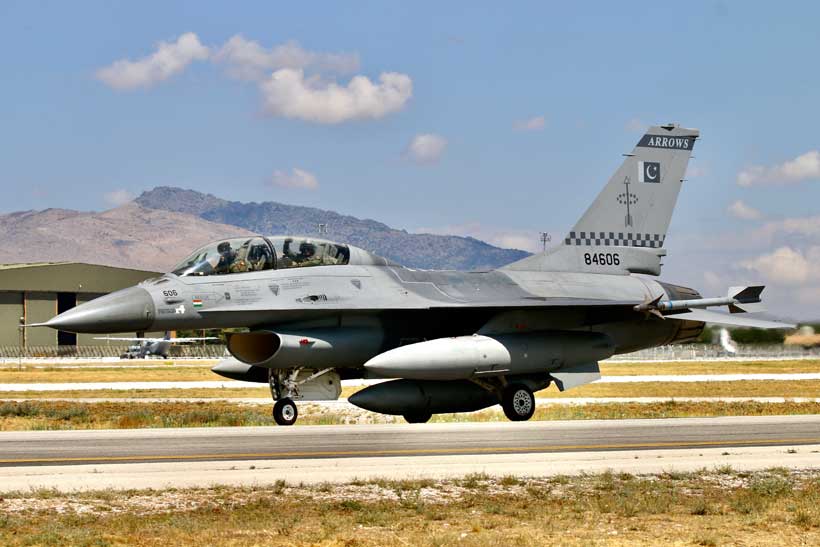In a recent escalation of its efforts to curb cross-border terrorism, Pakistan launched targeted airstrikes against the Tehreek-e-Taliban Pakistan (TTP) training camps situated in the border regions along Afghanistan. These airstrikes have drawn attention for their strategic importance in addressing the persistent threats emanating from TTP’s presence in Afghan soil. Contrary to misrepresentations by certain media outlets and the Interim Afghan Government (IAG), these attacks were aimed specifically at the TTP’s terror infrastructure and were not directed against Afghanistan or its forces. Pakistan has long been highlighting the security threat posed by TTP’s activities originating from Afghan territories. However, the failure of the IAG to take effective action has only exacerbated the situation, leading to these necessary retaliatory measures.
The TTP, a militant organization responsible for numerous terrorist activities across Pakistan, has utilized Afghanistan’s porous borders to establish safe havens, training camps, and command centers. These camps have served as focal points for the planning and execution of terrorist attacks within Pakistan, contributing significantly to the destabilization of the region. The recent airstrikes targeted four major terrorist centers, which were known to house large numbers of militants, including suicide bombers, high-ranking commanders, and significant stockpiles of weapons and ammunition. Among the key figures targeted in these operations were Sher Zaman alias Mukhlis Yar and Abu Hamza, trainers of suicide bombers, as well as Akhtar Muhammad alias Khalil and Shoaib Iqbal, who were central figures in the TTP’s media operations, overseeing propaganda efforts through the Omer Media arm of the group.
Pakistan’s ongoing campaign against TTP camps in the border areas is not merely a reactive measure but a result of the increasing realization that these camps have long been a persistent source of terror against Pakistan’s civilian and military targets. For years, Pakistan has presented evidence to international bodies that the TTP operates largely from Afghan soil, but despite these repeated warnings, the Afghan authorities under the IAG have failed to take decisive actions to dismantle these terror networks. This inaction has not only undermined Pakistan’s security but has also complicated the broader regional peace process.
It is crucial to note that these airstrikes were aimed at disrupting terrorist activities that posed direct and immediate threats to Pakistan’s sovereignty and security. The TTP’s continued activities have destabilized the region, resulting in loss of life and displacement of civilians. The camps targeted in the airstrikes had become hubs for terror operations, training future generations of militants, including suicide bombers who would later carry out attacks across Pakistan. The airstrike on these camps was therefore an essential move to thwart these plans and prevent further loss of life.
Some critics have attempted to frame Pakistan’s actions as an attack against Afghanistan and its current government, a misrepresentation that fails to recognize the real and urgent threat posed by the TTP. The airstrikes were, in fact, not aimed at Afghanistan’s institutions but at the specific elements of the TTP operating from Afghan soil. This distinction is crucial in understanding Pakistan’s defense strategy, which seeks to safeguard its territorial integrity and the safety of its citizens. In a world increasingly concerned with cross-border terrorism and its far-reaching effects, the notion of national self-defense—acknowledged by international law—is more pertinent than ever. Pakistan, like any sovereign nation, has the right to protect its citizens from acts of terror that emanate from foreign territories.
Pakistan’s actions align with the principle of self-defense under international law, which permits a state to take measures when faced with threats originating from outside its borders. The principle is enshrined in Article 51 of the United Nations Charter, which affirms a nation’s right to defend itself against armed attacks, including those from non-state actors. In the case of Pakistan, the threat from TTP has reached a point where airstrikes on training camps are not just an option but a necessity. The IAG, despite its internal challenges, must recognize that the presence of such terrorist groups is not in the interest of either country. The continued inaction on Afghanistan’s part has allowed these terror cells to thrive, exacerbating instability on both sides of the border.
It is important to recognize that Afghanistan, under IAG, is still in a process of rebuilding its governance structures and grappling with its own internal issues. The country is not yet a fully functional state, and its ability to enforce law and order, particularly along its borders, is limited. However, this cannot serve as an excuse for the continued safe-haven that terrorist organizations like the TTP enjoy within Afghanistan. The international community, including Pakistan, has called for stronger actions from the IAG to address these threats. The failure to do so has not only jeopardized Pakistan’s security but has also delayed the prospect of regional stability.
The airstrikes on TTP training camps should be viewed as a part of a broader effort to ensure peace and security in the region. Pakistan has consistently warned that the failure to act against terrorist groups operating from Afghan soil will only result in further escalation and destabilization. These recent airstrikes are a reminder that the international community must take a united stand against terrorism, irrespective of where it originates. Both Pakistan and Afghanistan must prioritize the dismantling of terrorist networks and work together to ensure that their shared border does not remain a breeding ground for extremism.
Finally, Pakistan’s airstrikes against the TTP training camps in the border areas were a necessary and legally justified response to the threat posed by cross-border terrorism. These actions underscore the urgency of addressing the issue of militancy in the region and the need for stronger cooperation between neighboring countries to combat terror. The international community must recognize Pakistan’s right to defend its sovereignty while urging Afghanistan to take stronger steps to neutralize terrorist groups operating within its borders. Only through collective efforts can long-term peace and stability be achieved in this volatile region.
